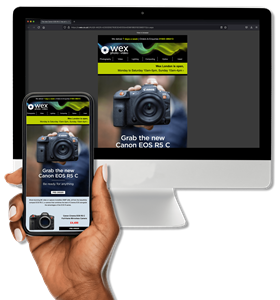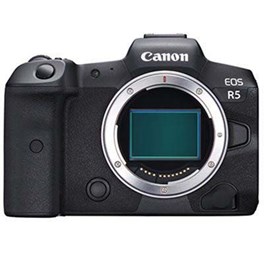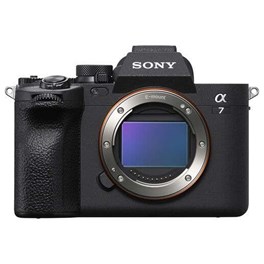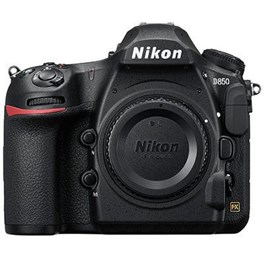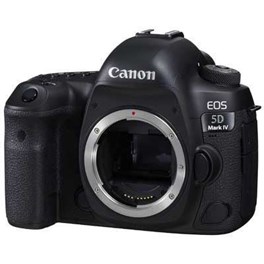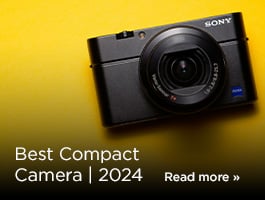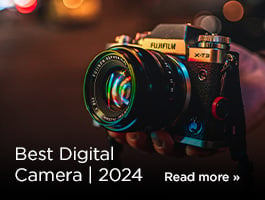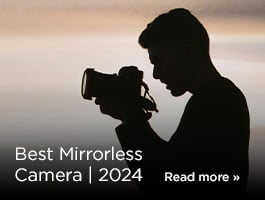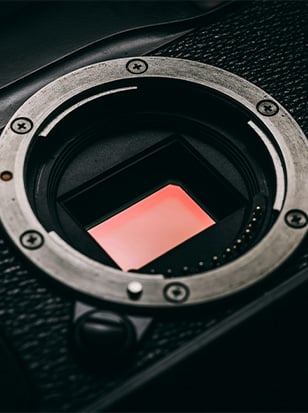
The best cameras for wedding photography need to do a lot of things at once. They need to be able to produce images to satisfy some of the most demanding clients a photographer will ever meet, and they need to be able to nail it first time. There’s little margin for error when it comes to shooting a wedding, and as such, it’s essential to think carefully about which camera you’re going to use before buying anything.
There are a few camera features that are a higher priority for wedding photography than they are for other genres of shooting. Here are the key things to look out for:
Fast, accurate autofocus - When getting those candid shots of the wedding party, you need a camera that will grab focus quickly and efficiently, even when the light gets low. Weddings are full of unrepeatable moments, and you need to be able to capture them. Specialist AF modes like Eye AF or Subject Recognition can make life much easier for a wedding photographer.
Dual card slots - In many genres, an extra card slot is a nice bonus – for weddings, it’s essential. You need an extra card running as backup for all the important moments, in order to ensure that a corrupted card doesn’t wipe out the entire day and leave you with nothing to give the client.
A good-sized sensor with decent resolution - You want to be able to produce nice, clean shots in all lighting conditions – this necessitates a decent-sized sensor. Full-frame is ideal, though there are credible options in APS-C and even Four Thirds. Resolution-wise, you want a camera with enough pixels to make good-looking prints, and being able to losslessly crop in is handy when it comes to the edit.
Fast, silent shooting - When shooting the ceremony itself, being able to fire off lots of shots without drawing too much attention to yourself is a major asset.
There’s more to consider of course, and we’ll get into all the nitty-gritty as we count off the best cameras for wedding photography…
Best Mirrorless Camera for Wedding Photography
If you’re looking to tick all the boxes we mentioned in our intro above, a mirrorless camera is going to be your best bet. Yes, you have other options with their own advantages – and we’ll get into them – but mirrorless models offer a combination of high-speed autofocus, silent shooting and top-notch image quality, all of which is catnip to any wedding photographer.
There are plenty of mirrorless systems you can choose from – we’ve suggested three here, but there are lots of other options, so you may also want to check out our guide to the best mirrorless cameras.
Some mirrorless cameras are designed to prioritise resolution and image quality; others are built more for speed. Some are made to do everything – these, unsurprisingly, tend to be the most expensive. We’ve picked just a few that absolutely excel at the things wedding photographers need the most…
Canon EOS R5 Digital Camera Body
Free 3LT Tripod worth £300
Truly shaking up the market, the Canon EOS R5 is packed with new technology and major improvements that sets it aside from its competitors. The Canon R body has been designed for professional photographers and videographers alike, allowing you to elevate your practice to the next level. It's been equipped with an all-new 45MP CMOS Image Sensor & DIGIC X Processor that is capable of incredibly detailed 45MP stills and 8K video footage. Combining Canon's Dual Pixel CMOS AF system and a blisteringly fast 20fps mechanical shutter, you'll be able to accurately capture every moment of the action with precision. Then, there is a game-changing new addition which is a Canon first: The R5 is the very first Canon camera body to feature a 5-Axis IBIS system that is compatible with the RF and EF optically stabilised lenses; producing shake-free and smooth video footage. It's a true marvel of the photographic world.
£2,529.00 inc. Cashback View
Pros:
- Stunning 45MP image quality
- Class-leading AF and super-fast burst
- Extremely effective IBIS
Cons:
- Video recording limitations
Hugely shaking up the market on release, the Canon EOS R5 is an absolutely stunning imaging tool for professionals, and it makes a pretty good case for itself as being the best camera that wedding photographers can buy. The full-frame 45MP CMOS sensor produces pristine, crisp, detailed images, and the Dual Pixel CMOS AutoFocus technology is one of the best systems on the market, with sublime speed and accuracy.
The EOS R5 was the first EOS R camera to incorporate in-body image stabilisation (IBIS), providing up to eight stops of effective compensation when paired with optically stabilised RF or EF lenses (the latter require an EF-EOS R adapter in order to work). If you want to capture video, the EOS R5 can do so in a variety of resolutions, including stunning 8K – though you do have to be aware that its limited recording times will restrict you to relatively short clips, depending on what frame rate and resolution you select.
Sony A7 IV Digital Camera Body
Interest Free Credit Available
Experience the Sony A7 IV. With an emphasis on versatility and performance across both photography and videography, this pro-level mirrorless camera stands as a must-have creative tool for professional image-makers. Discover what the A7 IV can offer you and order now!
£1,549.00 inc. Cashback View
Pros:
- Excellent all-round feature set
- 33MP is a nice sweet spot for weddings
- Brilliant AF tracking
Cons:
- Crop on 4K 60p video
- Rivals have faster burst
The Sony A7 cameras have always been the all-rounders of the line, in contrast to the high-resolution A7R models or the low-light video specialist A7S cameras. As wedding photographers need to be prepared for anything and ready to deal with the unexpected, the Sony A7 IV is a perfect choice. Its full-frame sensor has a resolution of 33MP, which is arguably the ideal sweet spot for wedding shooters – enough for great prints and cropping in, not so high that you’ll fill up your cards too fast.
The autofocus tracking on the A7 IV is also excellent – once it grabs a subject, it’s very unwilling to let go, which is great news if you’re trying to keep hold of the star couple as they move through a crowd. High-ISO performance is very good and the sensor-shift stabilisation is highly effective, The A7 IV can shoot at up to 10fps – while other camera these days are faster, this should realistically be enough to handle weddings, and the fast-clearing buffer is extremely welcome if you need to fire off lots of bursts in quick succession.
Pros:
- Impressive shooting speed with very good AF tracking
- Excellent lens range
- Beautiful viewfinder
Cons:
- 26MP is on the low end nowadays
The Fujifilm X-H2S is the speedster of the Fujifilm X mirrorless series of APS-C cameras. While it’s perhaps not as stylish to look at as gorgeous entries like the X-T5, the X-H2S can burst-shoot at a blistering 40fps while still making full use of autofocus. Image quality is superb, of course – we’d expect nothing less from Fujifilm. Having access to the X-mount means you get some beautifully expressive lenses to play with, and the highly effective stabilisation system can provide up to seven stops of effective compensation.
While we’ve mostly focused on photography in this guide, the X-H2S does have a seriously meaty video spec that’s worth mentioning. Many wedding photographers also like to offer video where clients want it, and the suite of video options in the X-H2S, including 10-bit 6.2K 30p and more, means you can add this particular string to your bow with aplomb.
Best DSLR Camera for Wedding Photography
DSLRs have been producing fantastic results for wedding photographers for decades now, and if you choose to shoot on one in 2023 you’ll be in good company. There are plenty of reasons why a DSLR can be advantageous to a wedding photographer – they tend to have great battery life, reducing the likelihood of power failure at a critical moment. The main DSLR systems from Canon and Nikon also have fantastic lens ranges, with loads of great second-hand options as well as newer ones (check out our selection of used DSLR lenses for what’s in stock currently).
High-end DSLRs also tend to cost less than they used to, now that professional users are largely shifting to mirrorless – so, if you want to use a DSLR to shoot weddings, you have the potential to make some serious savings. The DSLRs we’ve picked here are some of the greatest ever made.
Nikon D850 Digital SLR Camera Body
Save £250, was £3249
Introducing, the Nikon D850, a photographic workhorse that has been equipped with a huge 45.7 megapixel sensor that will not disappoint. The 45.7 megapixel back-illuminated, full-frame CMOS sensor and extended battery life will keep up with all any photographic adventure you can throw its way, from the studio photo shoots to the remotest places on Earth. The tough and rugged magnesium-alloy build and all-weather sealing allow you to take its power wherever you want to go. The stunning image quality and impressive performance of this camera makes it the ultimate choice and will continue to be a game changer for years to come.
£1,699.00 View
Pros:
- Fast, high-resolution shooting
- Well-implemented articulating touchscreen
- Genuine silent shooting mode
Cons:
- Big and bulky
- Live View focusing is contrast-detection only
The Nikon D850 is one of the best DSLRs ever made. Even though the Z series of mirrorless cameras are newer and shinier, no one is going to argue with you if you plan to shoot a wedding with the D850 – it is more than capable of doing an exemplary job. Its 45.7MP back-illuminated, full-frame CMOS sensor delivers stunning images even at higher ISO sensitivities. You can push it up to ISO 12,800 and still get images that wouldn’t look out of place in a wedding album, as long as you don’t mind doing a little noise-reduction in post.
Unusually for a DSLR, the Nikon D850 has a genuine silent shooting mode – not just “quiet” shooting, but actually silent. It only works in Live View, so you’ll need to be comfortable composing with the articulating LCD screen. However, it’s worth being aware that the D850 can’t take advantage of its on-chip phase-detection autofocus system in this mode, relying instead on contrast detection, so the autofocus won’t be quite as lightning-fast.
Canon EOS 5D Mark IV Digital SLR Camera Body
The Canon EOS 5D Mark IV Digital SLR Camera Body offers a 30-megapixel CMOS sensor with a maximum ISO sensitivity of 32,000, and an expanded 61-point AF-system. Capture magnificent detail even in the toughest conditions as the camera body features a weather-resistant design. Users can enjoy beautiful 4K video recording at 30 fps; whereas, HD video can be captured at 120 fps when trying to achieve a slow-motion effect. In addition to this, WiFi and NFC connectivity are also available allowing for easy file transfer and more.
£1,789.00 View
Pros:
- Excellent Dual Pixel CMOS AF
- Very good handling with deep handgrip
- Beautiful optical pentaprism viewfinder
Cons:
- One card slot is dated CompactFlash format
- Burst performance lags behind contemporaries
The 30MP Canon EOS 5D Mark IV was a very impressive DSLR when it was released back in 2016. Even though time has marched on and this isn’t quite the advanced camera it once was, the EOS 5D Mark IV will still put in an excellent shift when it comes to wedding photography. With brilliant DSLR handling and a nice, bright viewfinder, the EOS 5D Mark IV is just a satisfying camera to use. The Dual Pixel CMOS AF still performs extremely well, even when the light gets low.
Unlike the Nikon D850, the EOS 5D Mark IV is capable of using on-chip phase-detection autofocus in Live View, making this mode much more useable for capturing crucial moments. However, the Canon camera does not offer a truly silent shooting mode like the D850’s, and its screen is fixed rather than articulating, so you’ll have to weigh up which of those features is more important to you.
Nikon D780 Digital SLR Camera Body
The Nikon D780 comes as the eagerly anticipated successor to the well-regarded Nikon D750. It features a powerful 24.5 Megapixel Full Frame CMOS Sensor and EXPEED 6 image processor. This camera body can offer something to every level of photography and videographer alike. It features a 51-point Phase-Detection AF via the Viewfinder and 273-point Hybrid-AF system in Live View. The camera can shoot up to 7 fps with AF/AE and up to 12 fps in Silent Live View Photography mode. When it comes to video, the camera is capable of capturing 4K/UHD footage at 30p/25p/24p with zero crop factor. It also features dual SD card slots and an incredibly useful and high-quality tilting touchscreen.
£1,299.00 View
Pros:
- Strong, sturdy construction
- Phase-detection AF in Live View
- Excellent battery life
Cons:
- 24.2MP is on the low side
- No in-body stabilisation
The Nikon D780 was one of the last DSLRs to be released for Nikon F-mount, and as such, it’s packed with high-end features that we’ve also seen in the firm’s mirrorless cameras. It gains on-sensor phase detection autofocus that even works in Live View – something that even the mighty D850 conspicuously lacks. This is especially useful given the fact that the D780 delivers its fastest burst rates when you’re using Live View – 12fps, as opposed to 7fps when shooting with the viewfinder. Having dual UHS-II SD card slots is also an asset.
The resolution of 24.2MP is reasonable enough, but a little on the low side for wedding photographers, who may want more room to crop in and make prints. It’s also worth being aware that there’s no in-body stabilisation, meaning you may want to prioritise buying optically stabilised lenses to compensate.
Best Medium Format Camera for Wedding Photography
There was a time when we wouldn’t have considered for a minute recommending medium format cameras for shooting a wedding – but mirrorless medium format systems like the Fujifilm GFX and Hasselblad’s X system have changed the game. Wedding photographers are now achieving fantastic results with large-sensor cameras boasting triple-digit megapixel counts, and if you want to bring that inimitable medium format ‘look’ to a wedding shoot, well, now you can.
You have to be aware of the system’s limitations – as we’ll get into when we look at the specific cameras. You aren’t going to get the fastest autofocus, you aren’t going to rattle off dozens of high-speed burst images. However, with solid technique, medium format cameras can produce simply breathtaking wedding images that you can’t get with anything else. Here are the medium format cameras we’d recommend for making it happen.
Pros:
- Autofocus advancements make medium format viable for weddings
- 100MP allows for absolutely stunning prints
- Incredible low-light capabilities
Cons:
- Inevitably slower than other formats
- Huge storage needs
The images captured by the 100MP sensor in the GFX camera are absolutely stunning – you can make absolutely huge prints out of them that will take your clients’ breath away (and could be handy if you’re planning to show off your work at a trade show or similar). In low light, it’s an absolute beast, letting you push up the ISO and still capture incredible levels of detail in the frame.
The autofocus system does a decent job. For slow-moving subjects like people moving at a walking pace, the tracking will take care of it, but the camera is going to struggle with anything faster. This means you’ll need to plan your shots, make use of features like zone focusing, and accept the inevitability of a few missed frames (which are going to eat up a lot of card space until you delete them). This isn’t unique to the GFX 100S though – it’s just a fact of medium format wedding shooting.
Pros:
- Stunning high-resolution images with gorgeous colours
- On-chip phase-detection autofocus
- 1TB of built-in storage
Cons:
- AF not as fast as smaller-sensor cameras
The medium-format Hasselblad X2D 100C brings a raft of improvements to Hasselblad’s X system that makes it a credible option for wedding photography. As well as upping the resolution to 100MP to match its main rivals from Fujifilm, this newer camera also gains on-chip phase detection autofocus. While the AF system isn’t as fast as you’d find on full-frame and APS-C cameras – and you’d be hesitant to wholly rely on it for critical moments like the first kiss – it is much improved, aided also by a new processor.
Also, of course, the image quality is simply stunning, and once again if you want to make prints of your wedding images, the Hasselblad X2D 100C will produce absolutely unreal results. The dynamic range on this thing is incredible and the high-ISO performance is excellent. Having 5-axis stabilisation is definitely handy too, helping to capture sharp images handheld.
Best Budget Camera for Wedding Photography
When it comes to wedding photography, the term ‘budget camera’ needs to be considered in a slightly different context. The fact is that ultra-cheap cameras simply aren’t really suitable for wedding photographers, and we’d be derelict in our duty if we were to pretend otherwise. As such, we’ve picked out some models that aren’t the cheapest you can buy, but are significantly less expensive than the others featured on our list. Bear in mind that these cameras could also work as second bodies (an important thing for wedding photographers to carry, in case of catastrophic equipment failure on the day).
If you’re just starting out on your wedding photography journey, these budget cameras would make for an excellent entry point, with all the features wedding photographers are looking for, as well as plenty of lenses to choose from.
Nikon Z5 Digital Camera Body
Joining Nikon's Z series camera lineup, the Nikon Z5 is being coined as ‘The Catalyst'. This camera is aimed at those who wish to take a step into the world of full-frame photography. It features a powerful 24.3MP CMOS FX sensor that is capable of demonstrating the beauty of full-frame photography and gives you the opportunity to explore 4K video footage recording. It's equipped with a precise and fast autofocus system that is able to accurately track your subject, sporting both eye- and animal-detection. This is accompanied by a powerful in-camera 5-axis VR image stabilisation that will keep your images shake-free and your video footage smooth. This camera's design will open up the options of full-frame photography with ease and support, allowing you to truly appreciate the medium.
£1,249.00 View
Pros:
- Great value for full frame
- Works well with F-mount lenses (via adapter)
- Lovely electronic viewfinder
Cons:
- 4.5fps burst is a little pedestrian
- LCD only tilting, not fully articulating
An affordable, entry-level full-frame camera, the Nikon Z5 produces terrific results for a considerably lower outlay than its high-end siblings like the Z7 II or the Z8. If you’re looking to enter the Z system on a budget, perhaps with a view to upgrading once you’ve got a few weddings under your belt, it’s just the thing.
It would have been easy for Nikon to skip the second card slot on its entry-level model, so it’s a relief to see the Z5 sporting two media slots for that all-important backup. Image quality is excellent, even when you push the ISOs up to 12,800 or even 25,600 if you need to (settings beyond that probably aren’t going to produce images acceptable for a wedding album). The autofocus makes use of deep-learning intelligent AI for precise subject-tracking, though the burst rate of 4.5fps may be a little lower than some wedding shooters would prefer.
Pros:
- Excellent value for full-frame mirrorless
- In-body stabilisation
- Lots of E-mount lenses
Cons:
- 24MP is on the low side
- Only one card slot
The Sony A7 II dates all the way back to 2015, but is still available new, and is still an excellent option for any wedding photographer working to a strict budget. A full-frame mirrorless all-rounder, the A7 II has a lot to like about it. It’s nice and slim, but still manages to find room for in-body image stabilisation and an ergonomically sound dust- and moisture-resistant design. The OLED EVF and tilting rear LCD are both pleasant to compose with, and the hybrid autofocus system is pretty reliable (though not a patch on systems that have come along since).
There is one issue though – the A7 II only has one card slot, meaning it’s not a camera you want to rely on to capture unmissable, unrepeatable moments. It’ll work well as a second body, especially if you’re using a Sony body as your main camera and thus will be able to share E-mount lenses between them.

FAQs
What features should I look for in a camera for wedding photography?
When choosing a camera for wedding photography, consider factors like high resolution (at least 24 megapixels), low-light performance, fast autofocus, and the ability to use interchangeable lenses.
Is a full-frame camera necessary for wedding photography?
Full-frame cameras are preferred for wedding photography due to their superior image quality and low-light performance, but some APS-C and Micro Four Thirds cameras can also produce excellent results.
Should I choose a DSLR or a mirrorless camera for wedding photography?
Both DSLRs and mirrorless cameras can be great choices for wedding photography. Mirrorless cameras have gained popularity for their compact size and silent shooting, but DSLRs still offer excellent performance.
Do I need multiple cameras for wedding photography?
Having multiple cameras with different lenses can be beneficial for capturing various angles and moments during a wedding. It provides backup in case of equipment failure.
What are the best lenses for wedding photography?
Popular lenses for wedding photography include fast prime lenses like a 50mm f1.8 or 85mm f1.4 for portraits, as well as versatile zoom lenses like a 24-70mm f2.8 for flexibility.
Should I invest in camera accessories for wedding photography?
Yes, investing in accessories like a good flash, tripod, and quality memory cards is essential for wedding photography. They enhance your capability to capture diverse wedding scenarios.
How do we decide?
Our in-house photography experts, store staff and partners all work collaboratively to pour over our guides and tips articles. We also consider emerging trends and customer feedback to make sure our guides are always up-to-date and reflective of what people are truly looking for. By curating only the best products, our guides provide trustworthy recommendations, making it easier for customers to make informed choices with confidence.
If you would like more advice on any purchase our contact centre staff are here to help. Alternatively, you can reach us via email or social media. And don't forget. If you were to purchase anything based on our recommendations you'll be covered by our full returns policy
Sign up for our newsletter today!
- Subscribe for exclusive discounts and special offers
- Receive our monthly content roundups
- Get the latest news and know-how from our experts
